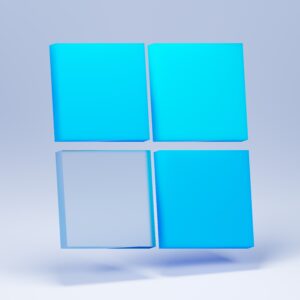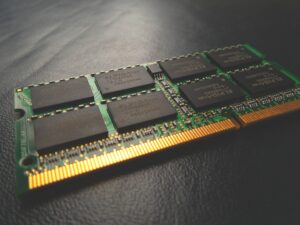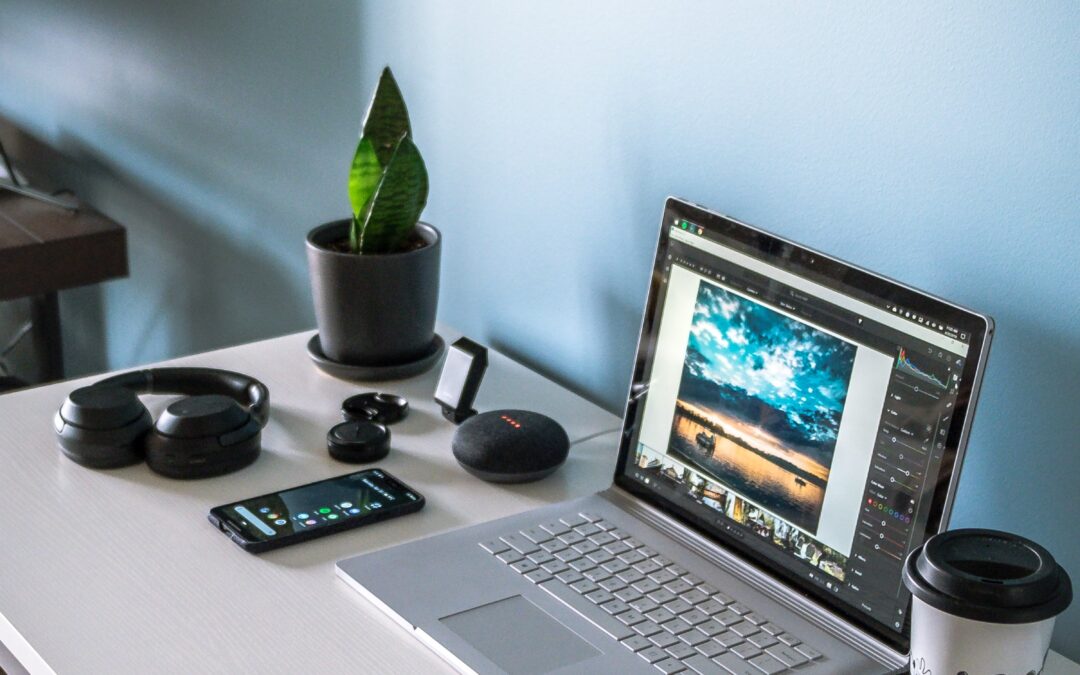Introduction
Are you in the market for a new computer? With so many different models and specs available, it can be overwhelming when trying to decide which one to buy. But don’t worry, with the right guidance, you can easily find the perfect computer that suits your needs. Let’s break it down into easy steps.
Step 1: Consider Your Needs
 Before buying a new computer, take some time to consider what you need it for. Do you need it for work or school? Will you be using it for gaming or streaming videos? Are there any specific programs that you will be running on it? Are you looking for something portable? Do you need an all-in-one desktop? Do you want your laptop to have a touchscreen? Think through your needs and prioritize what features are most important. Once you know exactly what kind of activities you’ll be doing on your computer and what your needs are, you’ll have an easier time choosing the right model.
Before buying a new computer, take some time to consider what you need it for. Do you need it for work or school? Will you be using it for gaming or streaming videos? Are there any specific programs that you will be running on it? Are you looking for something portable? Do you need an all-in-one desktop? Do you want your laptop to have a touchscreen? Think through your needs and prioritize what features are most important. Once you know exactly what kind of activities you’ll be doing on your computer and what your needs are, you’ll have an easier time choosing the right model.
Step 2: Determine Your Budget
 Once you have an idea of your needs, determine how much money you’re willing to spend on a new computer. You don’t have to break the bank; there are plenty of affordable options available depending on your budget and needs. Consider both upfront costs as well as long-term costs such as maintenance, software updates, and repairs down the line. If money is no object, then go ahead and splurge on top-of-the-line models with all the bells and whistles. Alternatively, if money is tight, look at lower priced models that still offer good performance such as Chromebooks, a refurbished computer or low-cost desktops and laptops. You might also want to consider less money on specs now but purchasing a computer that you are able to upgrade later on when needed.
Once you have an idea of your needs, determine how much money you’re willing to spend on a new computer. You don’t have to break the bank; there are plenty of affordable options available depending on your budget and needs. Consider both upfront costs as well as long-term costs such as maintenance, software updates, and repairs down the line. If money is no object, then go ahead and splurge on top-of-the-line models with all the bells and whistles. Alternatively, if money is tight, look at lower priced models that still offer good performance such as Chromebooks, a refurbished computer or low-cost desktops and laptops. You might also want to consider less money on specs now but purchasing a computer that you are able to upgrade later on when needed.
Step 3: Know What to Look For
Once you have considered your needs and determined your budget, you now need to find a computer that will work for you. Determining your operating system, processor, storage capacity, memory, and any other bells and whistles will help to narrow down the computer that will work for you.
– Operating System
 The first thing to consider is what operating system (OS) best suits your needs. Microsoft Windows is likely the most widely used OS in corporate settings, while MacOS is popular with creatives. Chromebooks are becoming increasingly popular as well because they offer cloud storage capabilities and their own version of a web-based operating system. If you are a techy, you also might like to use a Linux operating system. Deciding which OS works best for your needs will narrow down your choices significantly when selecting a computer.
The first thing to consider is what operating system (OS) best suits your needs. Microsoft Windows is likely the most widely used OS in corporate settings, while MacOS is popular with creatives. Chromebooks are becoming increasingly popular as well because they offer cloud storage capabilities and their own version of a web-based operating system. If you are a techy, you also might like to use a Linux operating system. Deciding which OS works best for your needs will narrow down your choices significantly when selecting a computer.
– Processor
The processor is the “brain” of your computer and plays an important role in how quickly it runs and how much multitasking it can handle. Intel processors are typically considered top-of-the-line, but AMD processors are gaining popularity as well because they offer great performance at a lower price point. Make sure you look for one that meets your computing needs and budget!
– Storage Capacity & Memory
 You should also consider how much storage capacity you need on your computer depending on what types of tasks you will be doing with it. You might also want to consider the type of storage component that is used. A solid-state drive (SSD) over a traditional spinning hard disk drive (HDD) might be a better option. If you plan on doing lots of video editing or storing large files, then more storage capacity may be necessary than if you were simply browsing online or typing up documents. Additionally, memory (RAM) determines how many programs can run at once without slowing down the speed of your computer. If you plan on running multiple programs simultaneously or playing high-end games, then more RAM may be necessary to prevent any lag time in response time from your system.
You should also consider how much storage capacity you need on your computer depending on what types of tasks you will be doing with it. You might also want to consider the type of storage component that is used. A solid-state drive (SSD) over a traditional spinning hard disk drive (HDD) might be a better option. If you plan on doing lots of video editing or storing large files, then more storage capacity may be necessary than if you were simply browsing online or typing up documents. Additionally, memory (RAM) determines how many programs can run at once without slowing down the speed of your computer. If you plan on running multiple programs simultaneously or playing high-end games, then more RAM may be necessary to prevent any lag time in response time from your system.
Step 4: Research Your Options
 When researching different computers, focus on reviews from trusted sources like CNET or Consumer Reports. Many times, these outlets provide detailed feedback regarding speed tests and battery life so that you can make an informed decision before making a purchase. It also helps to read customer reviews online so that you can get a better idea of how people are using their computers and if they are getting their desired results out of them. You just want to make sure you are reading reviews from reputable sources, and that you are looking at several different reviews to ensure you are getting an unbiased opinion.
When researching different computers, focus on reviews from trusted sources like CNET or Consumer Reports. Many times, these outlets provide detailed feedback regarding speed tests and battery life so that you can make an informed decision before making a purchase. It also helps to read customer reviews online so that you can get a better idea of how people are using their computers and if they are getting their desired results out of them. You just want to make sure you are reading reviews from reputable sources, and that you are looking at several different reviews to ensure you are getting an unbiased opinion.
Conclusion
Buying a new computer can seem intimidating but armed with these simple tips, finding the perfect machine should be easy! Take some time to consider what kind of activities will run on your computer and determine an appropriate budget before making any decisions. Lastly, do some research by reading reviews to get an accurate picture of how well each model performs in real life scenarios before making a purchase. With these tips in mind, finding the perfect laptop or desktop should be a breeze! Good luck!
Want some help sourcing a new computer? Reach out to us today!

Recent Comments